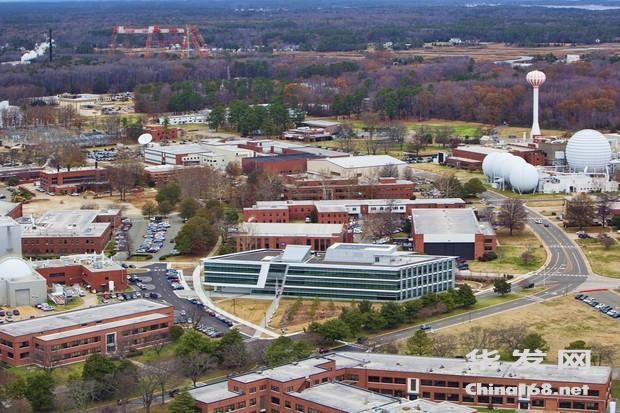|
|
来源: 文学城
美国联邦助理检察官1日表示,涉嫌从事间谍活动的联邦太空总署(NASA)前华裔合约雇员姜波,将就违反NASA电脑使用规定的一项轻罪认罪。有媒体称姜波将在认罪后的48小时内离境,而且他已经买好回中国的机票。
姜波今年3月20日被控向联邦干员作出虚假声明的重罪。彭博通讯社报道,他上月30日在维珍尼亚州纽波特纽斯被控违反NASA电脑使用规定的轻罪。法庭文件指,姜波在他的NASA手提电脑中非法下载受版权保护的电影和色情片。认罪协议聆讯定于2日举行。
WAVY网站的报道称,姜波将对这项把政府财产作个人用途的轻罪认罪。报道还说,姜波需要在48小时内离境,但未知时间从何时算起。不过报道称,他们获悉姜波已经购买离开美国的机票。
此外,联邦助理检察官克罗姆伯格1日在向法庭提交认罪协议文件时表示,除了这个轻罪指控外,政府已解决了指姜波作出虚假声明的案件。如果向联邦干员撒谎的罪名成立,姜波最高可判监5年及罚款25万。
姜波今年3月被捕时,联邦当局应NASA的请求对他展开串谋违反武器出口控制法的刑事调查。检察官在4月2日的法庭文件中表示,他们正致力鑑定,姜波是否已将或打算将机密资料带回中国,但搜查没有发现类似证据。
受雇于NASA合约商国家太空研究所的姜波,去年年底从中国旅行一个月后回美,12月被禁止进入NASA设施,今年1月11日被国家太空研究所解雇。他3月16日试图从杜勒斯国际机场乘坐飞机返回北京时被拦下。联邦当局指称,姜波向联邦干员撒谎,没有如实透露他行李中的电脑装置。但姜波的律师辩称,姜波英文不好,未能很好理解关员的提问。
当时的法庭文件指称,姜波在去年的中国之行中,违反NASA的安全规定,带上该机构的电脑和硬盘,因而被怀疑他将机密资料带回中国。
U.S. Finds Porn Not Secrets on Suspected China Spy’s PC
被捕华裔前NASA雇员姜波认轻罪--非法下载A片

NASA photographer Sean Smith hitched a ride with the U.S. Coast Guard to get this aerial view of NASA Langley Research Center on December 7, 2011.
A Chinese research scientist suspected of spying on the National Aeronautics and Space Administration - -- and pulled from a plane in March as he was about to depart for China -- is set to plead to a misdemeanor charge of violating agency computer rules.
Bo Jiang, who was indicted March 20 for allegedly making false statements to the U.S., was charged yesterday in a separate criminal information in federal court in Newport News, Virginia. Jiang unlawfully downloaded copyrighted movies and sexually explicit films onto his NASA laptop, according to the court filing. A plea hearing is set for tomorrow.
Along with the misdemeanor, the government said it had resolved the false statements case, Assistant U.S. Attorney Gordon Kromberg said in a filing today.
At the time of his arrest in March, Jiang was under federal investigation at NASA’s request for a possible conspiracy involving violations of the Arms Export Control Act, according to an FBI affidavit. Prosecutors said in court papers on April 2 that they were trying to determine whether Jiang had taken, or was seeking to take, “secret, confidential or classified information” to China.
Lost Job
Jiang, barred from NASA facilities late last year and fired from his job in January at the National Institute of Aerospace, was stopped on March 16 as he tried leave Dulles International Airport outside Washington for Beijing. Federal authorities alleged he lied to them by failing to disclose the computer equipment in his possession.
Jiang, 31, was one of about 281 nationals from countries designated as security threats employed at NASA facilities, according to congressional testimony in March by NASA Administrator Charles Bolden. He was blocked from resuming his work at NASA’s Langley Research Center in Hampton, Virginia, after coming back from a monthlong trip to China in December, according to court filings.
He took a NASA computer, as well as an NIA external hard drive from his employer, with him on that trip, violating the agency’s security regulations, according the criminal information. Jiang’s employment at the non-profit aerospace and atmospheric research and graduate education institute was terminated on Jan. 11.
Whistle-Blower Concerns
Representative Frank Wolf, a Virginia Republican, told reporters in Washington on March 7, more than a week before Jiang’s arrest, that whistle-blowers at NASA were concerned about possible security breaches at its research facilities.
The agency “should immediately review all foreign nationals with current NASA credentials” and eject anyone with ties to organizations or foreign governments designated as counterintelligence threats, Wolf said on March 7.
A week later, Wolf named Jiang as one of the individuals identified by the whistle-blowers during an exchange with Paul Martin, NASA’s inspector general, at a hearing of the House Appropriations subcommittee led by the lawmaker. The same day, the FBI opened an investigation into Jiang for potential violations of the Arms Control Export Act, according to the bureau affidavit.
Jiang’s lawyer, Fernando Groene, declined to comment on the new charge and plea hearing. Zachary Terwilliger, a spokesman for U.S. Attorney Neil MacBride in Virginia, didn’t immediately respond to a phone and e-mail messages seeking comment on the plea agreement.
Jill Shatzen, a spokeswoman for Wolf, said he didn’t have a comment on the plea agreement.
Foreign Nationals
Bolden told Wolf’s subcommittee in March that 192 foreign nationals from China had physical access the agency’s facilities. That amounts to more than two-thirds of the total number of employees from countries designated as potential security risks, such as North Korea and Iran, who have access to NASA offices.
Bolden said he had taken steps regarding individuals from designated countries, including a moratorium on granting them any new access and termination of remote computer access to NASA facilities for employees from those countries.
Jiang, while working at Langley’s Visual Information Processing lab through a NASA-funded agreement between NIA and the agency, dealt with “generic work resulting from fundamental research with no classified sensitive or restricted information,” court papers filed by Jiang’s lawyer.
NASA Research
Jiang, who has been in the country since 2007, obtained his doctorate from Virginia’s Old Dominion University in 2010 and worked as a researcher on the multi-scale retinex, an image enhancing project developed by NASA, according to court documents. He was going home because he had no job prospects and his student visa had expired, according to the documents.
Prosecutors alleged that Jiang moved his departure date forward -- from April 5 to March 16 -- after his name was released during the March 13 hearing with Martin, the NASA inspector general.
Jiang said in court papers that he is innocent and was targeted by Wolf for political purposes.
A judge overturned a magistrate’s decision on releasing Jiang on $10,000 bail after the government objected and labeled the defendant a “serious risk of flight.” Prosecutors told the court on April 2 that they hadn’t fully reviewed the electronics found on Jiang at the airport, which included a second computer, two external hard drives, a sim card and an iPod found in Jiang’s luggage.
Jiang faced as many as five years in prison and a $250,000 fine if convicted for lying to federal agents.
The case is U.S. v. Jiang, 13-mj-00076, U.S. District Court, Eastern District of Virginia (Newport News).
|
|